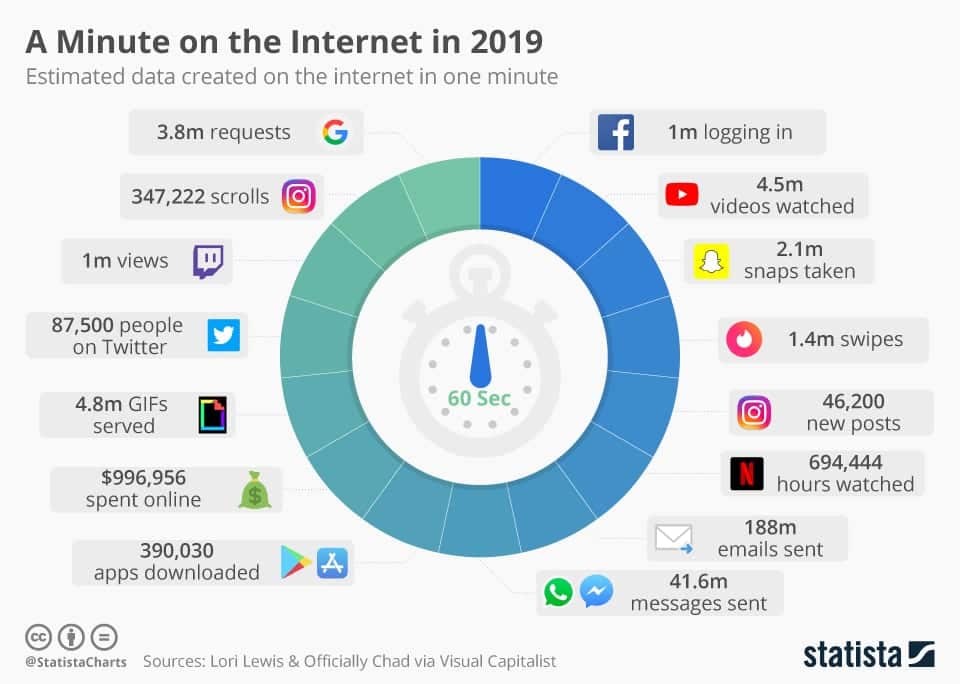Search engine optimization (SEO) is one of the most essential components of a digital marketing campaign. Optimizing your content makes it easier for potential customers to find you and drives quality traffic to your website. E-A-T, or expertise, authoritativeness, and trustworthiness, is an important element of Google’s Quality Evaluator Guidelines, although not necessarily a direct ranking factor. That said, you should be familiar with and implement E-A-T strategies if you want to remain relevant.
What is E-A-T?
According to Google’s Quality Evaluator Guidelines (QEG), a document used to direct website raters on how to assign quality scores to search results for specific queries, better, more relevant digital content generally translates to higher ranking in search results. Most people, when conducting a web search, choose from one of the first few results. Fortunately, there are ways you can improve the chances of your site being one of those results. One of those ways is making sure your content reflects expertise, authoritativeness, and trustworthiness.
- Expertise – Expertise means expert skill or knowledge in a particular field. In determining how well a website is going to rank, Google looks for credentials, and promotes content generated by or associated with a person with certifications, education, or credentials. Everyday expertise is also relevant. For example, a person who was born and raised in Baltimore could be considered, by Google, able to create expert content about living there.
- Authoritativeness – To determine authority, Google looks for information about the reputation of an organization or individual. Users want to find content created by an authority in an industry, because they know they can trust the information. If a podiatry company’s CEO, for example, has written articles on the subject that have been cited in research papers, Google will view that company as authoritative.
- Trustworthiness – Google needs to be able to trust your website for it to rank highly. There needs to be information about your location, employees, terms and conditions, history, and contact information readily available on your site for it to be considered trustworthy. They also look at customer reviews and business performance when determining this.
Why Do I Need It?
As the above chart indicates, approximately 3.8 million Google searches are conducted every minute. It is, without a doubt, the most used browser worldwide. For most people, Google is the go-to search engine for just about everything. Considering that, it’s important that your website has the qualities Google has deemed necessary for an expert, authoritative, trustworthy brand.
When providing search results, Google wants to deliver the best options out there. In order to do that, they need to separate the highest-quality content from the rest. For example, if someone makes a medical query, Google wants to be able to connect that person with answers from a real doctor before a person without credentials.
The QEG lists the following as characteristics of a high-quality webpage:
- High level of Expertise, Authoritativeness and Trustworthiness (E-A-T)
- A satisfying amount of high-quality MC (main content)
- Satisfying website information and/or information about who is responsible for the website, or satisfying customer service information if the page is primarily for shopping or includes financial transactions
- Positive website reputation for a website that is responsible for the MC on the page
If your site is optimized to have this kind of information and content, Google is going to consider it to be of a higher quality. Accordingly, they are going to promote your website when a relevant term or keyword is used in a search.
How to Improve Your Website’s E-A-T
Now that you understand E-A-T, it’s time to start improving your website. The following are some things you can do to improve your E-A-T yourself:
- Make sure your site is professional and user-friendly – A good website has some universal qualities: no broken links, no spelling and grammar errors, no excessive, annoying ads, and quick page load speeds. The first and easiest thing to do to improve your E-A-T is to go through your site, page by page, and fix mistakes. If your site is extremely out-of-date and you need some design help, contact a professional.
- Edit or remove low-quality or out-of-date content – If your blog posts or articles are mostly old, they might contain information that isn’t relevant or accurate anymore. Keep things fresh. Google is more likely to consider sites with a lot of stale content to be low-quality. Every page of your site should have a purpose and benefit to the user. If it doesn’t, get rid of it. You should only be posting information that you can support with credible sources. Any claims you make need to be backed up by trustworthy organizations or individuals with credentials. Honesty and transparency are key.
- Improve your site’s security – To improve your E-A-T rating, you should make sure your website is secured. Install a Secure Sockets Layer (SSL) certificate, which encrypts connections between web browsers and servers. This gives users a secure connection and protects the personal data they share with your site. Without this, users may look elsewhere.
- Invest in branding – Google uses any third-party information they can find about you that will provide insight into your credibility. Because of this, it’s important to have a well-rounded picture of your brand available. Invest in your social media presences. Make sure they include information about you, and use them to engage with your audience. Developing a brand voice is critical – it establishes that you are an authority in your industry and makes your content memorable and recognizable.
- Include author names and biographies – For any blog posts or articles on your website, the contact information and credentials for the writer should be readily available. Landing and product information pages should also include contact information for the business. Google takes this information into consideration when determining how to rank your site. The reputation of the creator of the content establishes expertise, authority, and trustworthiness, which reflects better results to provide to searchers. Adding photographs to bios and making them more personal also helps to establish trust.
- Optimize your YMYL content – YMYL, or “Your Money, Your Life,” is the way Google categorizes websites that sell products or provide information related to finances, safety, happiness, and health. This content is held to the highest standard due to how important it is that this information is relevant, or these products are safe to use. Make sure your YMYL articles are well-researched and well-written, and cite only reputable sources.
In Conclusion
Search engine optimization is an ongoing process, and E-A-T is a major element of that process. It allows for higher-quality websites that contain expert, authoritative, trustworthy information to be promoted in Google searches over others. As a business owner, you want your products and services to appear when people search for them. By making sure your content complies with Google’s standards, you can improve your E-A-T, drive traffic to your website, and ultimately increase your revenue.


